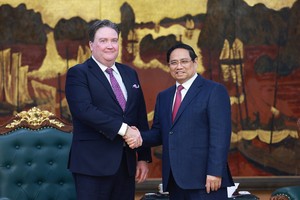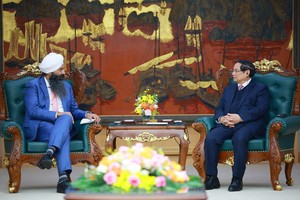The "Korean Wave" of pop culture is ebbing overseas, according to the latest figures, but an official said Thursday he expects a renewed surge of interest thanks to new TV dramas.

South Korean TV dramas, movies and pop music took Asia and other parts of the world by storm earlier in the decade in a phenomenon known as the Korean Wave or Hallyu.
The export of broadcast content alone rose 20-30 percent every year between 2001 and 2005.
Last year exports of broadcast content such as TV dramas, variety shows and documentary films rose only 1.9 percent year-on-year to 184 million dollars, the state-run Korea Creative Content Agency (KCCA) said.
Imports of foreign content tripled to 66 million dollars in 2009.
"Overseas demand for our product has been slow amid a global financial crisis. We also face growing competition from US, Chinese and Taiwanese content," Yoon Jae-Sik, a KCCA team leader, told AFP.
He also admitted that in the past few years, South Korea failed to produce programmes on a par with previous popular TV classics such as "Daejanggeum" and "Winter Sonata".
"I'd like to put it this way. The Korean Wave is not ebbing but waiting for a new surge," Yoon said. "We'll see the Korean Wave turn around this year."
TV series such as "Queen Sunduk" and "Iris" would inject new life into the regional appetite for Korean pop culture, he said.
"Queen Sunduk", a history drama produced by MBC TV, and "Iris", a thriller series by SBS TV, drew large numbers of domestic viewers last year.
























